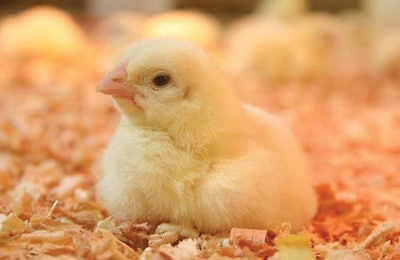
On April 27, the Minnesota agricultural lighting company Once Inc. announced it received a notice of allowance from the U.S. Patent and Trademark Office, meaning the office intends to issue a patent, on its application to patent a technology that can influence the sex of oviparous embryos – those of birds, fish and most reptiles – naturally through the application of light.
A release from the company said the technology will allow the poultry industry to control the sex of embryos in eggs without using genetic modification techniques or hormone injection. Often in poultry production, one gender is more economically useful than the other – hens for the table egg business and males for the chicken and turkey meat businesses. Euthanasia of male layer chicks is becoming an animal welfare issue in some countries. Germany has gone so far as to ban maceration, or grinding of unwanted male chicks, by 2017.
Once’s CEO Zdenko Grajcar said his company’s technology can solve the problem by allowing farmers to pick the sex of the bird while it is still in the egg. In a statement, he said the technology targets light absorption centers in the bird’s sex-determining genes.
“In essence, we developed a very simple genetic male/female switch which is based on relatively inexpensive, narrow band light-emitting diodes," Grajcar said.
Gender selection would be useful to the global egg industry, which is working to find a purpose for undesired male chicks and develop breeds of birds that are useful as male and females. Once’s release said the technology might also be useful for commercial aquaculture and horticulture.
The company expects to release related technologies by the end of the year. In an email, Tanya Streifel, a spokeswoman for Once, said the company has conducted large-scale commercial trials in the hatchery market and its sex diversion trails will begin later in 2016.
Once declined to share details surround its science, citing confidentiality.
“We will publish findings and news when they become available,” Streifel said.


















